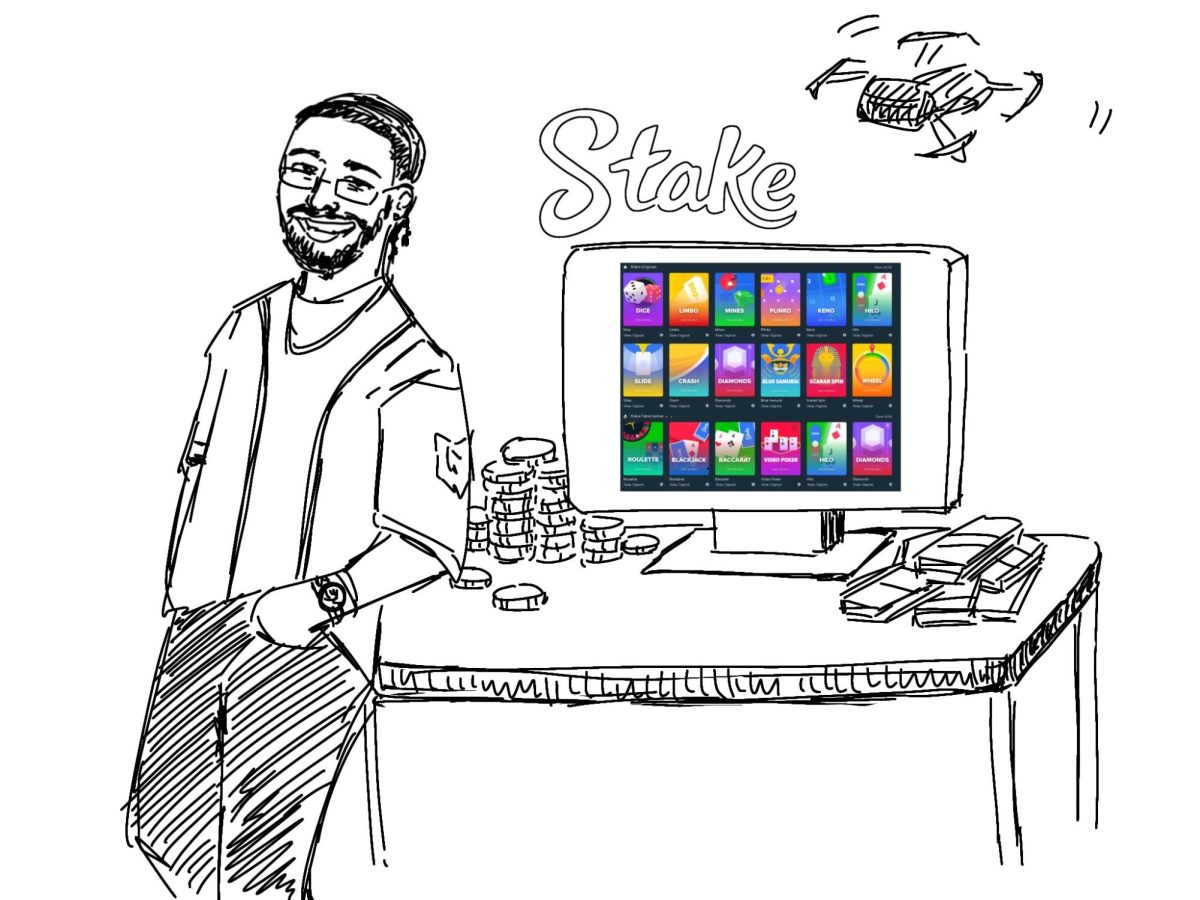Legalized sports betting and easy mobile app access have boomed in Illinois since remote registration began in 2022. It’s a convenience that fuels concerns about rising youth participation and underage gambling through loopholes, exposing teens and young adults to aggressive marketing. Heightened risks of addiction, significant financial consequences and unique developmental challenges now confront young people navigating this betting culture.
Seeking tax revenue, Illinois legalized sports betting for those 21 and older via the Sports Wagering Act in June 2019. While online betting initially required in-person registration at a casino, this mandate was removed by later legislation (HB 3136), enabling permanent remote sign-ups starting in March 2022, and significantly altering the state’s betting landscape.
Existing legal loopholes related to online gambling help contribute to increased participation among youth. The 2021 Statewide Assessment of Gambling and Problem Gambling in Illinois found that the highest lifetime prevalence of online gambling occurred among residents aged 18 to 24.
“Unfortunately what happens is people will lie about their ages, use siblings’ accounts or use other peoples accounts in order to place bets,” said Megan Bice, Naperville Central health teacher. “So now we’re getting into the issue of lying and if something legally did happen, now students could get into severe consequences.”
Unlike fantasy sports, where participants often build virtual teams and compete based on player statistics, sports betting involves wagering actual money on the outcomes of real games.
Apps such as FanDuel Sportsbook & Casino, DraftKings and BetMGM are among the most popular choices for bettors in Illinois, each seeing spikes in use since remote registration simplified access.
“What people, students or teens can do is select a variety of different bets on these apps,” Bice said. “Some of them combine multiple sports, multiple games, into one bet and they’re able to upload money into the app, place their bets on it and then collect the money in some way.”
Illinois has solidified its position as a major player in the U.S. sports betting landscape, ranking fourth in lifetime betting handle. In the last completed fiscal year alone (FY24), sports wagering contributed approximately $190 million in state taxes and licensing fees.
While some sportsbook betting apps align their age minimums with state regulations (often 18 or 21), others maintain a uniform 21+ age approach across all states and use strict verification through photo ID, social security and address verification. However, verification processes on other platforms can be less rigorous.
“There’s one app called Fliff, which doesn’t require you to even put in an ID until you want to take money out,” senior Keso Sahadewan said. “So that’s why it’s a lot more chill and a lot of people use that one. But there’s also Underdog and Sleeper, which are almost geared towards underaged people.”
The Lure and Risk of Betting Addiction
“We look at addiction as not just substance but behaviors, and what can happen when we introduce sports gambling is the reward [addiction],” Bice said. “You place a bet, you win. Maybe it’s only five bucks, but it doesn’t matter; that’s gonna send off that pleasure pathway, that dopamine hit and people will continue to seek that out.”
Compared to traditional fantasy sports or older betting methods, modern sports betting apps often allow users quick access to funds or winnings within their accounts. For Sahadewan, having this monetary stake enhances the enjoyment of watching sports.
“When I set a player to get, you know, three three-pointers in a basketball game and then I’ll watch the game, I’ll stress out a bit and watch them,” Sahadewan said. “And because I’m getting money from it, it’s fun to see if it hits or not.”
For some people this rush of dopamine is what becomes addicting.
“If you have it in the app and you see your total amount, you’re only seeing that go up, that’s the problem and that’s what’s gonna give you that reward, the feel good,” Bice said. “Do you see the app showing you the red or the negative? Not necessarily.”
Since he started betting, Sahadewan estimates he has lost around $100-200 but has wagered close to $4,000 in total. He notes that while his typical bets might be relatively small, many of his friends bet on more games than he does or wager higher amounts.
One popular app among students, PrizePicks, is considered to be a fantasy sports operator making it legal to play in Illinois rather than a gambling site which would require users to be 21.
“I used to track how much I’d spent, and PrizePicks says I’ve won $3,100 but it doesn’t say how much I’ve spent either, so I don’t really know,” Sahadewan said. “But it is pretty hard to keep track, especially when you [bet] a lot, it’s kind of hard to keep track of every single purchase you make and then every win you have.”
Bice believes betting apps are introducing new fans to sports, noting how her friends with no prior interest are getting involved. She’s seen how it’s often significant others or siblings “drawing them in” to use the apps, getting people to bet even when they don’t even know the sport.
“I know people who are my age and older that are now struggling with [sports betting,]” Bice said. “What started off as something fun is now hard for them to stop. Because even though they just bet maybe $100 and they only won $10 out of it, it doesn’t matter, the win is what keeps on coming back.”
The risks of gambling addiction, particularly from sports betting, are heightened for young people. This increased vulnerability stems from the fact that the prefrontal cortex—crucial for planning, judgment and decision-making—is not fully developed during adolescence.
“And [betting] can unfortunately take over, it puts people in a lot of financial situations, because, again, they’re not looking at what they just bet to get that money, and it’s going to have financial repercussions,” Bice said. “It could affect your occupation, your job and your schooling.”
How Betting Reaches Youth
Lifetime Value is a metric that estimates the total revenue a business anticipates earning from a customer throughout their relationship with the company. The alcohol and tobacco industry has used this concept to their advantage for centuries, advertising to younger audiences hoping to draw them in for life—sports betting is no exception.
“There’s a lot of media and social media around sports betting,” Sahadewan said. “Some posts will tag ESPN Bet which is another Instagram account that’s focused on sports betting. The other day I was watching UFC and they had live odds for the game, money lines and spreads on the TV.”
While sportsbooks are legally prohibited from targeting ads at individuals under 21, they still reach younger demographics through methods like sponsoring young adult celebrities or promoting their brands on college campuses.
“We’ve seen the increase of gambling addiction go up just because of more states making it legal,” Bice said.
Data from the 2021 Statewide Assessment of Gambling and Problem Gambling in Illinois found that young adults were the most likely group to say they would not seek help for a gambling problem.
“[There’s] definitely more risk for teens,” Bice said. “Teens don’t see how much everything is yet, right? You don’t see the bills so the money in their mind might be a little more expendable than a person who has a mortgage, a car payment, or utilities, and therefore we’re seeing them put more in where we wouldn’t see an adult.”
While the Advanced Health course dives into more detail around the dangers of gambling, the typical health class only scratches the surface of gambling and addiction.
“Our addiction unit is based more on just the drugs,” Bice said. “You know, do I throw it out there every once in a while that addiction could be behavior? Yes. Could we cover it more? Yeah. It’s definitely something, probably in the next year, we will be implementing more.”
Sahadewan has not seen many of his friends lose substantial amounts of money due to betting, however, he acknowledged that sports betting holds high prevalence at Central especially during popular fantasy seasons such as march madness and the Super Bowl. Additionally, junior Vardhan Singu founded All-in Club at Central this December, which allows members to gamble in poker and blackjack, although no real money is involved.
Bice said one of the best ways to get help if you’re struggling with addiction is to have someone monitor your money, whether that be a parent, friend or significant other.
“If you call the gambling number and tell them that you need help, they will actually take your email, your phone number and they will make it so you cannot access [betting apps],” Bice said.




